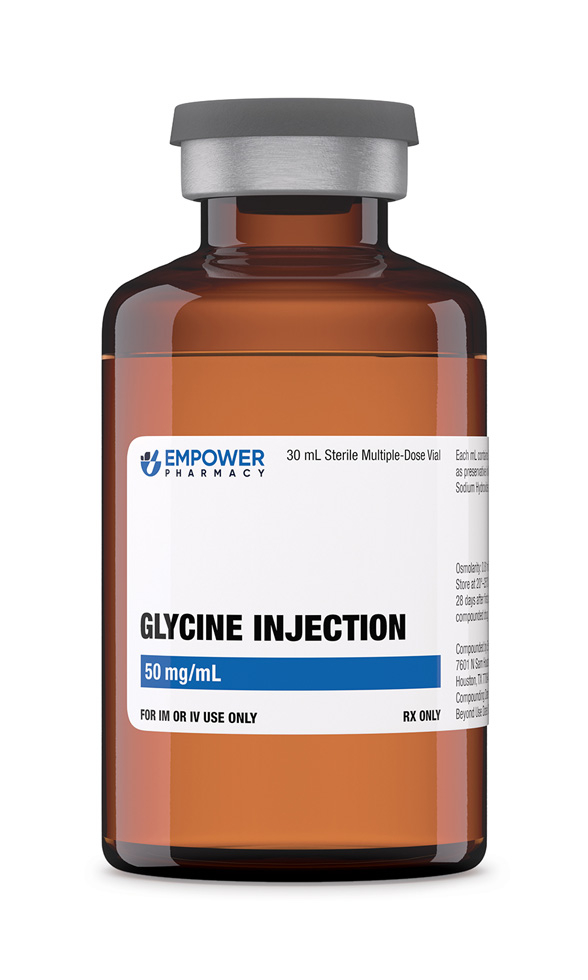Glycine is the simplest amino acid that has been discovered. It was one of the earliest amino acids to be isolated from gelatin back in 1820.
Glycine is found principally in gelatin and silk fibroin. Glycine is an amino acid that’s involved in the production of DNA, phospholipids, and collagen. It’s also involved in the release of energy.
Joint Repair: Glycine plays a vital role in collagen formation. It’s an important component for promoting joint, tendon, and ligament function and growth. Roughly 1/3 of collagen in the body is composed of glycine, and collagen is critical for the formation of the connective tissues that keep joints flexible and capable of successfully withstanding shocks.
Muscle Growth: The body uses glycine during the biosynthesis of creatine, which supplies all muscles with a source of fuel to repair damage and grow stronger. It also provides cells with energy. Glycine can help boost:
Endurance
Strength
Performance
Glycine also benefits hormone production and regulation. It helps the body to naturally synthesize steroid hormones essential to regulating both the fat to muscle ratio and control energy expenditure.
Anxiety: Glycine is indeed an intriguing amino acid, especially for its role as an inhibitory neurotransmitter. It works alongside other compounds like taurine and GABA to help modulate brain activity, which can lead to various benefits, including improved sleep quality and mood regulation.
The potential for glycine to help with conditions like anxiety, learning disabilities, and even certain neurological disorders highlights its significance in mental health. Its ability to reduce hyperactivity in the brain may contribute to minimizing symptoms of psychosis and seizures when used as part of a broader treatment plan. Overall, while more research is needed to fully understand its efficacy, glycine could be a valuable component in managing various mental health challenges.
Digestion: Amino acids, including glycine, help to rebuild the tissue that lines the digestive tract; keeping bacteria and food particles contained inside the gut, rather than exiting through tiny openings that pass this matter into the bloodstream where it can trigger an inflammatory response Glycine plays a role in forming the two most important substances in the gut lining: collagen and gelatin.
Aging: Glycine is used to produce glutathione, an antioxidant that prevents cell damage and several signs of aging.

